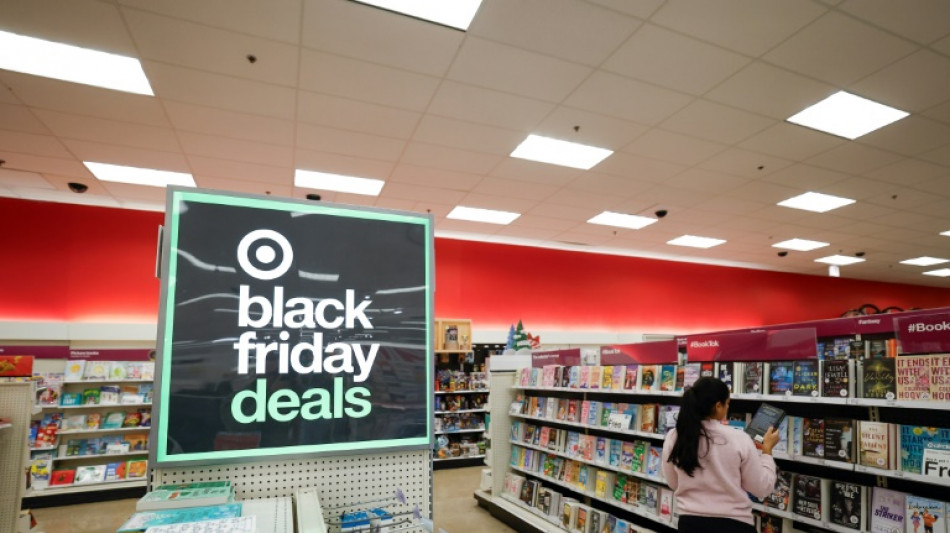

'Black Friday' deals target inflation-weary US consumers
The annual Black Friday shopping day has always been about finding the best deals, but this year retailers are preparing for a US consumer more zealously fixated than ever on getting value for their money.
Inflation has stabilized after dramatic price spikes during the Covid pandemic years, but consumers are still feeling the pinch -- meaning bargain-hunting strategies such as grabbing early giveaways and waiting for last-minute steals are in vogue.
Compared with other years, holiday shoppers in 2024 are "even more preoccupied and very focused around value and discounts," said Vivek Pandya, leading insights analyst at Adobe Digital Insights.
"We do see stronger price sensitivity on the part of the consumer and they are very responsive to deals and event-tie deals," he said.
Consumers throughout 2024 have responded to special discount occasions such as Memorial Day and Amazon's "Prime Day."
Black Friday, the unofficial kickoff of the US holiday gift season, comes the day after Thanksgiving and opens a long commerce-centered weekend that also includes "Small Business Saturday" and "Cyber Monday."
In recent years, as inflation has grown as a concern, major chains like department store Target have been pulling ahead "Black Friday" promotions to October or even earlier.
Consumer prices on average were 22 percent higher in August 2024 compared with January 2020, according to Pew Research, and popular discontent with inflation is one reason Donald Trump won the US presidency in November.
Inflation also continues to guide retailer discounting decisions as they try to deliver what the market demands.
At Target, shoppers have learned to turn out in force for the chain's "Circle Week" savings events held about once every quarter. That translates into less buying the week before and after, executives said.
After a lengthy period of inflation, "consumers tell us their budgets remain stretched," Target CEO Brian Cornell told analysts earlier this month.
"They're becoming increasingly resourceful in their shopping behaviors, waiting to buy until (the) last moment of need, focusing on deals and then stocking up when they find them," he said.
- Incomes 'edging up' -
The National Retail Federation has projected holiday spending growth of between 2.5 and 3.5 percent in the 2024 season compared with the year-ago period, to as much as $989 billion over the two-month period.
Economists have pointed to an easing of gasoline prices as a supportive factor, along with an ebbing in the costs of some food items.
The inflationary environment has weighed especially heavily on households with lower incomes, with banks pointing to rising charge-off rates as an indicator of increased stress.
But some chains, such as off-price apparel retailer, Burlington Stores have pointed to improvement for this cohort of the population. Some of the chain's strongest sales have been in stores in low-income zip codes, said Burlington Chief Executive Michael O'Sullivan.
"Maybe for the first time since 2021, it looks like their real incomes are finally edging up," O'Sullivan said on a conference call this week.
Thanksgiving, which is always the fourth Thursday in November, falls on its latest possible date in 2024. As a result, retailers are pivoting to a season with five fewer days than last year.
Best Buy launched its Black Friday sale a week ahead of Thanksgiving this year.
The electronics chain has also brought back "Doorbuster" sales every Friday this year in stores and online -- events many chains had phased out in recent years because of their association with hordes of waiting crowds that sometimes resulted in injury.
On Wednesday, Adobe Digital Insights said that online sales through the first 24 days of the holiday season were up 9.6 percent year-over-year, above the 8.4 percent growth projected for the entire season.
Pandya, the insights analyst, said the shorter season may be one reason for the outsized early sales, but that it also reflects how the competitiveness for online goods that drives down prices.
Y.Ingvar--MP




